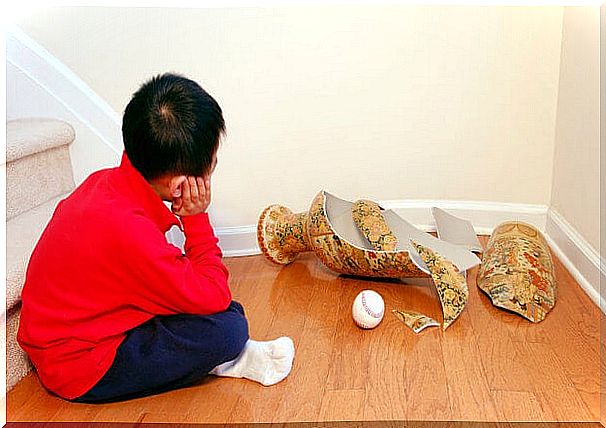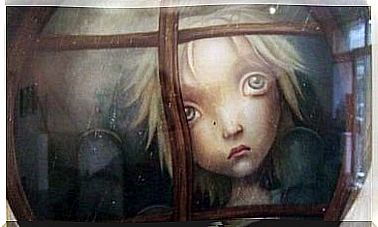Does Your Child Have Imaginary Friends? What To Do?

Imaginary friends are inseparable companions who know all the antics, secrets and desires of children.
They are never fake and are always willing to listen, comfort and keep you company, no matter what time or place they are.
Imaginary friends. a real situation
Having imaginary childhood friends is a fact that sometimes surprises families.
- Does our child feel lonely?
- Don’t we give it enough attention?
- Does he have such a concern that he needs to look for an imaginary friend with whom to share this possible problem?
- Why did he invent an imaginary friend and not seek out a real, flesh-and-blood friend?
Many parents consider that if their child creates an imaginary friend, it is because something bad is happening to him or because he is feeling lonely.
The uncertainty of whether they are doing the right thing or whether their child’s upbringing is deficient leads them to ask a multitude of questions that, most of the time, only add to the dilemma.
In the search for answers, parents wonder if it’s just their child who has imaginary friends or if it’s a trend in kids today.
To clarify these and other questions, continue reading this article.
What are imaginary friends?
Imaginary friends are non-real characters that live in children’s minds and appear and disappear according to each child’s needs.

Are they the result of a mental disorder?
Not necessarily. It’s usually normal in childhood. These characters usually appear in children’s minds around 2 to 8 years of age and disappear over time.
However, if you suspect that the arrival of imaginary friends in your child’s life is something out of the ordinary, we always recommend seeking expert help. You can go to a child psychologist because they will be able to tell you if it’s a passing thing or if it’s a symptom of a disorder.
An imaginary friend indicates creativity, doesn’t it?
Yes. Imaginary friends are fantasies that children invent and whenever fantasy exists it is accompanied by creativity.
Imaginary friends are dolls that come to life, completely unreal characters, fictional animals… They can have unusual “physical” characteristics and do what no one else can.
What to do with imaginary friends?
Nothing. Absolutely nothing. The existence of imaginary friends shouldn’t worry adults. On the contrary, it can be good for the child to have a “friend” to play with and talk to. If it was unpleasant or if it hurts itself, the child would not invent them.
Parents should act naturally and talk about and with imaginary friends, just as the child does. It is not good for parents to ignore, reject or fight with the child whenever he “brings” his imaginary friends into real life.
Nor is it necessary to tell children that these friends don’t really exist and that they are fantasies they are making up.
You only need to take action when the child wants, for example, to blame the imaginary friend for a mischief that he himself did. Wanting, therefore, to escape their responsibilities.
When are imaginary friends a cause for concern?
As we mentioned before, each family, by intuition, may suspect that the situation is a little out of the ordinary. In this case, the ideal is to seek specialized help.
So, it is necessary to talk to the child or consult a psychologist when:
- The child talks to the imaginary friend about recurring themes that are not in accordance with their age, such as death.
- The child wants to spend more time with the imaginary friend than with real friends.
- The imaginary friend “has” bad ideas and always wants to play pranks that endanger the child’s life.
- The child does not have real friends or does not know how to relate to the children at the daycare or school.
Incidence of imaginary friends
Approximately half of the world’s children, at some point in their lives (whether for prolonged periods or in specific situations), have already had an imaginary friend.
Some create an imaginary friend who accompanies them at all times, while others invent friends to play with. There is still a third group that makes friends and then forgets about them.









